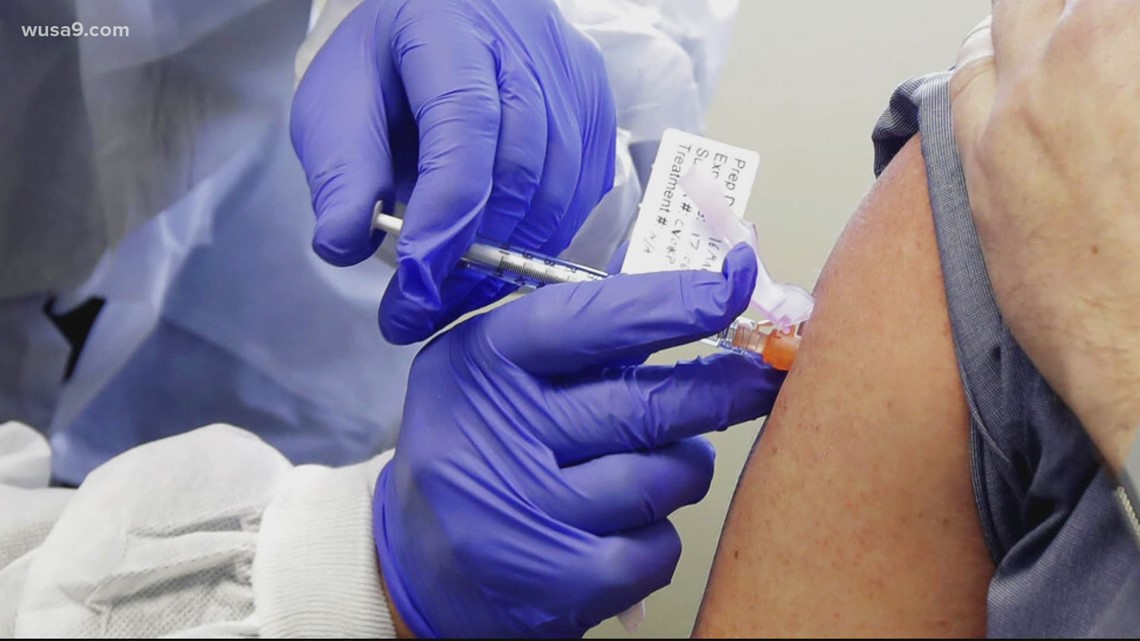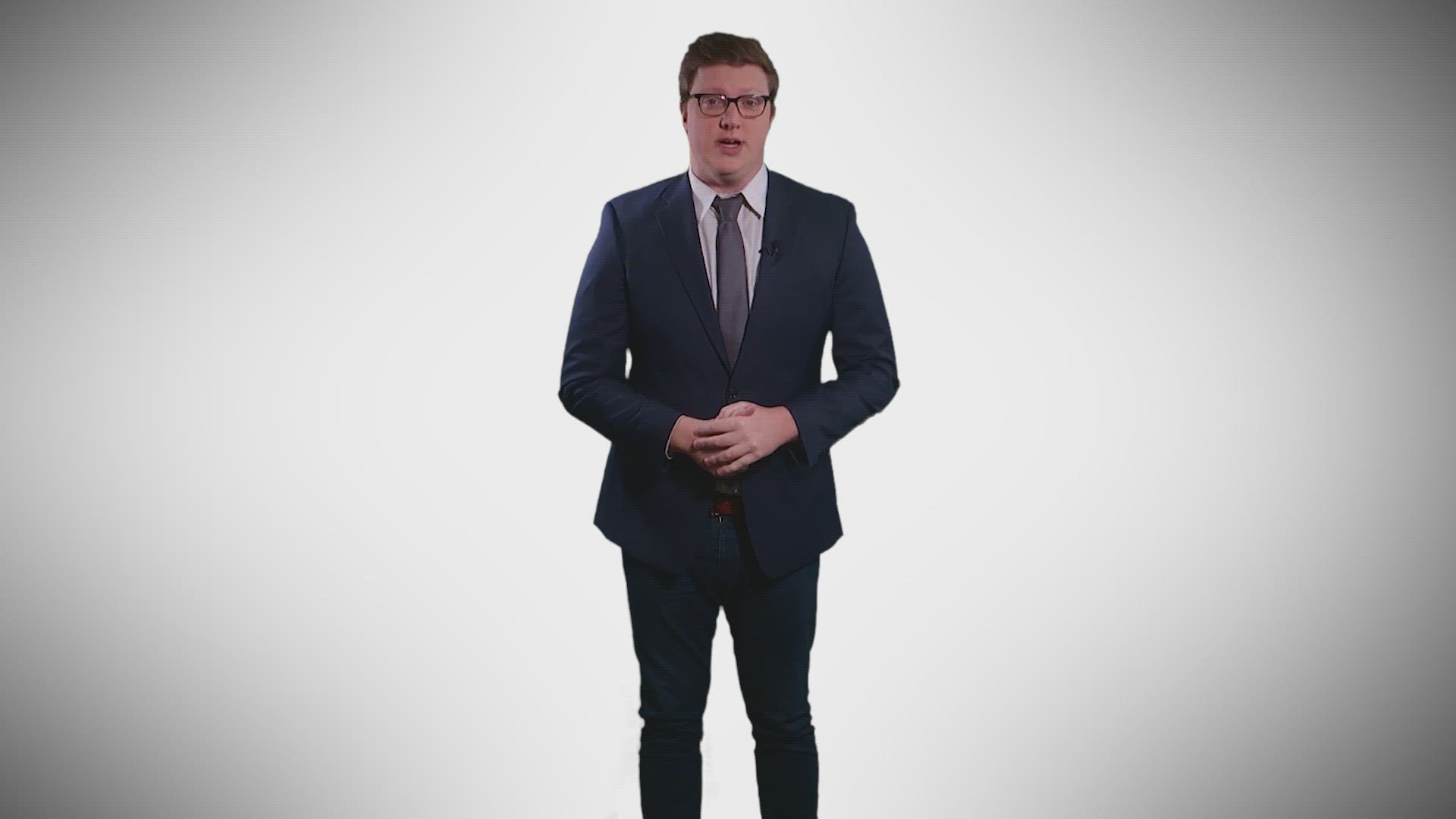WASHINGTON — There’s a shot it ends the COVID-19 pandemic.
The vaccine rollout is underway, and now some wonder if these first-of-their-kind drugs may soon be required in some settings.
QUESTION:
Can employers, schools and states mandate that people get vaccinated?
SOURCES:
- The Equal Employment Opportunity Commission
- Dr. Arthur Caplan, Director of NYU Langone’s Division of Medical Ethics
- Peter Meyers, Law Professor at George Washington University Law School
- Dorit Reiss, Law Professor at UC Hastings College of the Law
- Aaron Goldstein, Labor and Employment Attorney at Dorsey & Whitney
ANSWER:
Yes, once COVID vaccines are licensed by the FDA, employers, states and schools will likely be able to mandate vaccinations. But it’s unclear if they can do it before those vaccines are fully licensed.
WHAT WE FOUND:
To break down vaccine mandates, it’s important to think of this in two phases.
First, what’s allowed under Emergency Use Authorization, which the FDA has now approved for both Pfizer and Moderna’s vaccines. Then, the rules for vaccines that have been licensed by the FDA, which could happen later in 2021.
Breaking down Emergency Use Authorization
Under Emergency Use Authorization, the current status of approved COVID vaccines, our experts don’t agree on whether or not mandates are allowed.
Dr. Arthur Caplan says right now these are basically experimental drugs.
“An EUA vaccine would never hold up to a legal challenge,” Dr. Caplan said.
Professor Peter Meyers points to the FDA’s language in their EUA approval.
The FDA fact sheet for Healthcare Providers reads, “The recipient or their caregiver has the option to accept or refuse Pfizer-BioNTech COVID-19 Vaccine.” And the FDA Fact Sheet for Recipients and Caregivers advises “It is your choice to receive or not receive the [Pfizer Vaccine].”
“It seems to me nothing could be clearer than that, that individuals can’t be forced to do it,” Meyers said. “How can you plausibly argue an individual can be required to get it?”
But Professor Dorit Reiss sees legal wiggle room, given the FDA does not specify whether or not employers can have consequences for employees who refuse the vaccine.
“An employer can be sued under this, but it is tricky to say that a court will interpret this to mean that a private employer, to whom these documents are not directed, cannot impose any conditions,” Reiss said. “I think a court could go either way on this.”
The EEOC’s guidance sides with Professor Reiss on this.
“Employers can mandate a COVID vaccine as long as they comply with all federal EEO laws, especially the ADA, GINA, and Title VII of the Civil Rights Act,” an EEOC spokesperson said, clarifying that this includes the unlicensed vaccines that have been approved for emergency use.
So for now, mandates for vaccines approved by Emergency Use Authorization are a grey area.
Explaining licensure
As for fully licensed vaccines, which the FDA could make later this year, there are established precedents.
"All things being equal, an employer can fire an employee for any reason or no good reason at all. They just can't fire an employee for any illegal reason,” Aaron Goldstein said. “And currently, schoolchildren, health care workers, teachers are all required to be vaccinated. And there's no legal problem with that, with exceptions for individuals with either disabilities or with religious beliefs.”
The EEOC has issued guidance that employers can require COVID vaccines and make employees show proof they got one.
The two exceptions are people with medical complications or religious objections. The EEOC says employers would need to provide those workers with a “reasonable accommodation,” which could include a separate workspace or mask requirement.
If an employer can’t safely provide reasonable accommodation, they can exclude those employees from the workplace, but they can’t necessarily fire them because they may have other rights. In other words, it’s complicated and case-by-case.
“If sometimes a reasonable combination cannot be made, then a hospital can say, in that case, you can't work here unless you're going to be vaccinated,” Professor Meyers said.
Professor Meyers says employers can challenge workers who refuse a vaccine citing religious objections.
“People who just come in there and say, ‘I have my own religion, and I don't, and we're opposed to vaccinations,’ that is never going to work,” he said.
“I think if you were trying to enter a sporting event, a concert, I suspect most of them are going to say no, we're not taking any exemptions,” Dr. Caplan added.


Even states can mandate vaccines, though Professor Reiss says that could be challenged in the future. In a 1905 Supreme Court case, Jacobson v. Massachusetts, the court ruled the State of Massachusetts could require everyone to get vaccinated unless they have a medical reason.
In 2019, the state of New York passed a law ending religious exemptions for vaccinating school children after a measles outbreak.
BOTTOM LINE:
Once COVID vaccines are licensed by the FDA, which could happen later in 2021, businesses, schools and states can issue mandates. Whether or not they will, and what challenges they could face, even the experts don’t know.
“I think there could be a lot of lawsuits,” Aaron Goldstein said. “But my guess would be that they're going to fizzle out pretty quickly and that the biggest fights are going to be at the political level.


